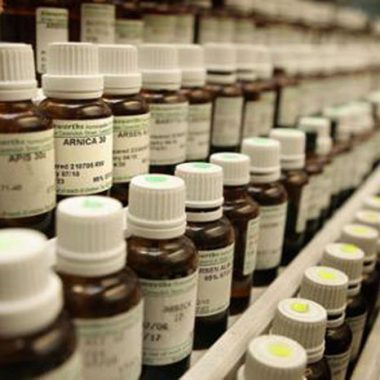GPs set to be banned from prescribing homeopathy

NHS England is planning to stop the prescribing of homeopathy as part of new guidance for CCGs on medicines that can be considered to be of low priority for funding.
Homeopathy is a new item on the list of possible low-value medicines that GPs will be banned from prescribing.
Originally NHS England said that it would review just 10 items, but it has added eight new treatments, including homeopathy and herbal treatments.
It has also said that it is reviewing over 3,200 products that could be purchased over the counter, including at pharmacies, petrol stations or convenience stores.
The original consultation document failed to include homeopathy in its treatments that should be banned.
However, following a consultation, a paper presented at today’s NHS England board meeting said: ‘NHS England’s view is that, at best, homeopathy is a placebo and a misuse of scarce NHS funds which could better be devoted to treatments that work.
‘Data on the residual use and cost of homeopathy on the NHS are hard to come by. A recent Freedom of Information request by a third party suggested that at least £578,000 has been spent on prescribed homeopathy over the past five years, with the total cost being higher than that when the cost of consultations was factored in.’
Talking at the NHS England Board meeting today NHS England medical director Sir Bruce Keogh said: ’I think this (homeopathy) has been an issue which has concerned scientific professionals for a long period of time.
‘We can no longer shy away from addressing this particular issue. If we want our NHS to be evidence based and outcomes focused, then we must expect to have difficult conversations over difficult issues.’
Gluten-free foods are subject to a separate consultation by the DH, says NHS England.
RCGP chair Professor Helen Stokes-Lampard said: ’We know that a number of treatments are of little or no value, and are at best a placebo. We also know many other medications are available very cheaply over the counter and are much more readily obtainable than when they first became available on prescription, and both GPs and the public should be mindful of this.
’If patients are in a position that they can afford to buy over the counter medicines and products, then we would encourage them to do so rather than request a prescription – but imposing blanket policies on GPs, that don’t take into account demographic differences across the country, or that don’t allow for flexibility for a patient’s individual circumstances, risks alienating the most vulnerable in society.’
The BMA GP Committee’s prescribing subcommittee chair Dr Andrew Green said that the Government should be ‘blacklisting’ these drugs to remove the pressure from GPs.
He said: ‘GPs have a contractual duty to prescribe drugs that their patients need, and pressure must not be placed on them to act in a way that may contravene those regulations. Where there are clinical reasons that drugs should not be provided on the NHS, such as for co-proxamol or homeopathic substances, then these should be added to the “blacklist” which formally prevents NHS supply.’
Which items could GPs be banned from prescribing?
Co-proxamol
Dosulepin
Prolonged-release Doxazosin
Immediate- release Fentanyl
Glucosamine and Chondroitin
Herbal treatments
Homeopathy
Lidocaine plasters
Liothyronine
Lutein and antioxidants
Omega-3 Fatty Acid Compounds
Oxycodone and Naloxone combination product
Paracetamol and Tramadol combination product
Perindopril Arginine
Rubefacients
Once-daily Tadalafil
Travel vaccines
Trimipramine
Pulse October survey
Take our July 2025 survey to potentially win £1.000 worth of tokens

Visit Pulse Reference for details on 140 symptoms, including easily searchable symptoms and categories, offering you a free platform to check symptoms and receive potential diagnoses during consultations.










